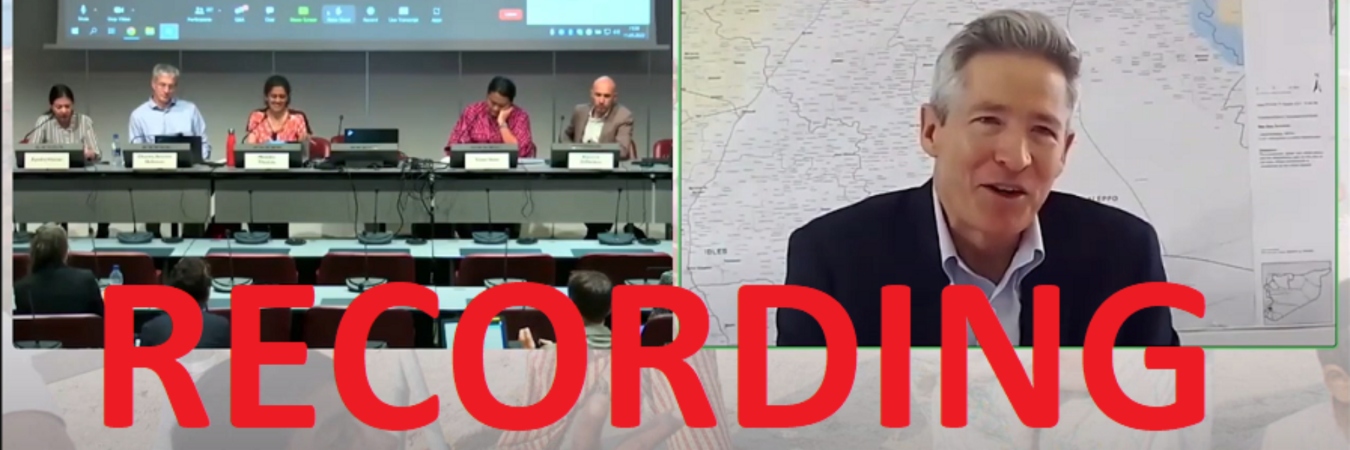
Now Available-Recording of the Third Session in Humanitarian Networks and Partnerships Weeks (HNPW) Event Series on AAP
Access the audio and video recordings of the IASC and PHAP webinar exploring the key actions required from humanitarian leadership to make AAP a reality
On 11 May, PHAP together with the Inter-Agency Standing Committee (IASC) organized the third session in the Humanitarian Networks and Partnerships Weeks (HNPW) Event Series on Accountability to Affected People (AAP).
Drawing on the outcomes of the discussions during the previous two sessions organized during the HNPW on Accountability to Affected Populations, this high-level session focused on the key actions required from humanitarian leadership to make AAP a reality.
During this event, participants joined to be part of a hybrid interactive event with a dynamic panel of speakers. They had the opportunity to hear from Charles-Antoine Hofmann, Chief of Section AAP, UNICEF. He offered a brief overview of the past AAP sessions, their work on AAP, and reflected on the recent IASC Principals’ statement on AAP to "address the asymmetry of power that currently defines the relationship between humanitarian agencies and affected people". Speaking on community engagement and focus when it comes to leadership in AAP was Vasiti Soko, Director, National Disaster Management Office, Fiji. She spoke on the importance of their emergency structure that is a bottom-up approach; policies and training for the community; and participatory approach. She also emphasized the significance of coordination with partners and localization.
Mark Cutts, UN Deputy Regional Humanitarian Coordinator for the Syria Crisis, spoke on his leadership role in his work with their main coordination body known as the Humanitarian Liaison Office. He highlighted the key actions taken within the team such as ensuring increased Syrian participation in leadership; gender mainstreaming; participation of affected people in coordination meetings; and clear and consistent language interpretation.
Alyoscia D'Onofrio, Vice President and Head of Technical Excellence at International Rescue Committee (IRC) provided an INGO perspective of leadership commitment on AAP. He stated that what is needed is a simplicity and clarity of focus, listening and responding to clients; simple, rapid feedback loops and bringing it into management conversation; and a participatory approach in design processes. He also encouraged a reassessment of cash and voucher assistance to attain greater independence in decision-making and money management by providing lumpsum cash instead of smaller staggered payments. Ayesha Hassan, Associate Regional Director, Community World Service Asia, spoke on the challenges faced and their solutions on working with language disparities between refugees and host/local communities. She asserted that key messaging in multiple and local languages and ensuring accessibility to interpreters.
This hybrid event was the third in the series following the first session that explored working towards collective AAP approaches at country level and second session on standardized complaints and feedback mechanisms for AAP.
If you missed out on this event, you can now access the video and audio podcast format recordings of the discussion on the event page.
Access the recordings